Deeply Delicious:
Cooking with Japanese Wholefoods with Holly Davis
Listening to Holly Davis share her passion for cooking with Japanese wholefoods was a true delight. She is the author of Ferment, a staple on my kitchen counter-top, Holly brings expertise in creating deeply nourishing dishes. In her recent webinar, she invited us to explore the rich heritage and transformative power of Japanese ingredients and techniques that have been cherished for thousands of years.
Preserving Japanese Culinary Heritage
Holly emphasized the importance of preserving traditional methods of fermenting and cooking with natural foods. These practices date back to the 17th century in Edo (now Tokyo). Supporting these methods sustains both cultural heritage and artisanal skills. Holly encouraged the use of high-quality Japanese ingredients like Shoyu soy sauce, Tamari, Umeboshi plums, and Mirin rice wine vinegar. Each adds unique and complex flavors to our dishes.
Connecting to Nature Through Wholefoods
Eating well, according to Holly, means developing your own style with whole foods. It’s about connecting to nature. She encouraged visiting farmers’ markets to discover seasonal, locally grown produce, such as beetroot, swedes, and turnips. Holly also suggested fermenting foods when they are in season and abundant. This approach is both economical and a celebration of nature’s colors, textures, and flavors. It provides a richer experience than simply opening a store-bought packet.
Achieving Balanced, Delicious Flavours
Japanese cuisine balances flavours—sweet, sour, salty, bitter, and umami—to create “complex deliciousness.” This harmonious blend makes Japanese food satisfying. Holly explained that although raw soybeans are toxic, a slow fermentation process transforms them into the delicious flavors of soy sauce. Ferments and pickles can be stored for long periods and quickly elevate any meal, making them a practical and nutritious addition to the kitchen.
Seasonal Eating and Preserving for Health
My experience of returning home to a box filled with beetroot and beans from my friend filled my heart. I used them to make Kvass, a simple beetroot ferment that supports heart and liver health. Holly emphasized eating with the seasons, explaining that Winter—a time of little growth—calls for salty flavors and preserved foods. Having jars of preserved vegetables on hand brings vibrancy and nourishment to our winter plates.
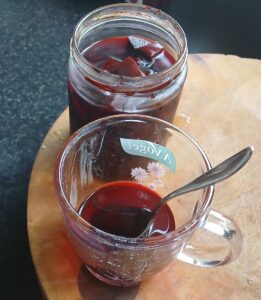
Understanding the Life Cycle of Food
Cooking with whole foods means considering the entire life cycle of what you eat. Holly highlighted the importance of knowing how fish and animals are treated, as their cells directly impact ours. Poorly raised food can introduce stress and harmful residues into our bodies. Holly also warned against oils that have been bleached, deodorized, or processed with heat and solvents. Instead, she recommended using traditional, cold-pressed, unrefined oils.
Choosing the Right Cookware
Holly advised swapping non-stick cookware for cast iron or stainless steel. When food sticks, it means the pan is transferring heat properly. Paying attention to the smell, color, and sound of your food as it cooks will help achieve the best results.
Enjoying the Process of Cooking
Holly believes enjoying the process of preparing food is key. This is especially true for those dealing with digestive issues like bloating, constipation, or IBS. When we’re stressed, we don’t make the best food choices. She advocates for a calm, mindful approach: chew slowly, and listen to what your body needs.
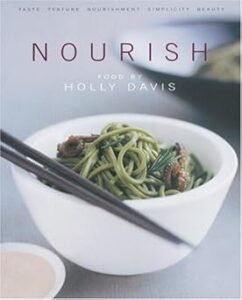
Developing Intuitive Eating
Holly encouraged us to develop an intuitive understanding of what our bodies need for health. Instead of fearing food or feeling confused about it, she suggests fostering curiosity. Start with one bite at a time and explore.
Conclusion: Nourishing Body, Mind, and Spirit
Holly Davis’ message is clear: Cooking with Japanese wholefoods goes beyond preparing meals. It connects us to tradition, nature, and our bodies’ needs. By embracing these practices, we nourish our bodies, minds, and spirits. Every meal becomes an opportunity for healing, discovery, and joy. Looking after our good gut feeling is the goal.
Learn More about Deeply Delicious: Cooking with Japanese Wholefoods with Holly Davis
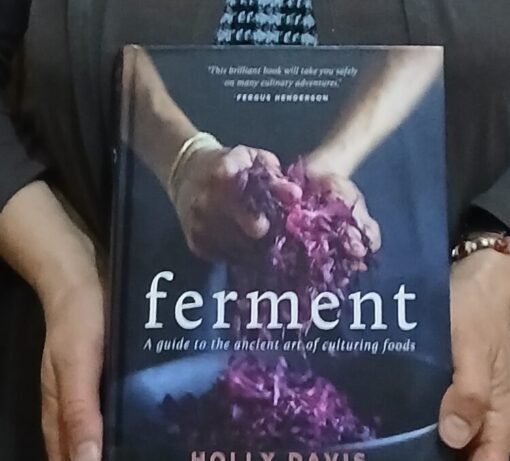
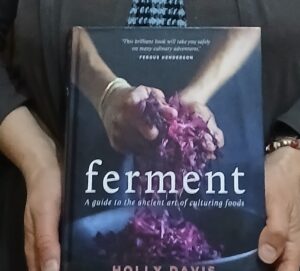
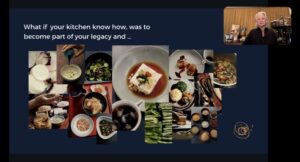

0 Comments